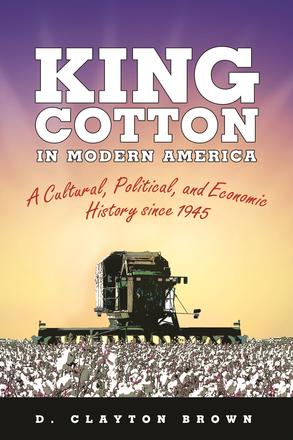
King Cotton in Modern America
A Cultural, Political, and Economic History since 1945
How farming of the South's royal fiber expanded and changed under mechanization and competition
Description
King Cotton in Modern America places the once kingly crop in historical perspective, showing how "cotton culture" was actually part of the larger culture of the United States despite many regarding its cultivation and sources as hopelessly backward. Leaders in the industry, acting through the National Cotton Council, organized the various and often conflicting segments to make the commodity a viable part of the greater American economy. The industry faced new challenges, particularly the rise of foreign competition in production and the increase of man-made fibers in the consumer market.
Modernization and efficiency became key elements for cotton planters. The expansion of cotton- growing areas into the Far West after 1945 enabled American growers to compete in the world market. Internal dissension developed between the traditional cotton growing regions in the South and the new areas in the West, particularly over the USDA cotton allotment program. Mechanization had profound social and economic impacts. Through music and literature, and with special emphasis placed on the meaning of cotton to African Americans in the lore of Memphis's Beale Street, blues music, and African American migration off the land, author D. Clayton Brown carries cotton's story to the present.